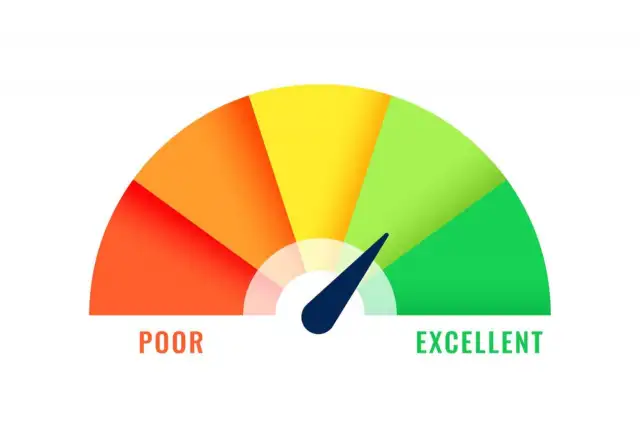Your credit score affects everything from your ability to rent an apartment to the interest rate you’ll get on a mortgage or auto loan. But many Americans wonder: Is my credit score good? And how does it stack up against others nationwide?
In this article, we’ll help you understand what counts as a “good” credit score, compare it to the U.S. national average, and give you tips to improve it if you’re not quite where you want to be.
What is a credit score?
A credit score is a three-digit number that reflects your creditworthiness — in other words, how likely you are to repay debt on time. Lenders use it to decide whether to approve you for credit and what terms to offer.
The most commonly used score is the FICO® Score, which ranges from 300 to 850. The higher your score, the lower the risk you pose to lenders.
What is considered a good credit score?
Here’s a general breakdown of FICO credit score ranges:
| FICO Score Range | Rating |
| 800 – 850 | Exceptional |
| 740 – 799 | Very Good |
| 670 – 739 | Good |
| 580 – 669 | Fair |
| 300 – 579 | Poor |
If your score is 670 or higher, you’re considered to have good credit by most lenders. At that level, you’re likely to qualify for loans, credit cards, and rental applications — often with favorable terms.
What is the average credit score in the U.S.?
According to data from FICO, the average credit score in the United States was 718 in 2024 — a slight dip from previous years, but still within the “good” range.
Here’s how different age groups typically compare:
| Age Group | Average FICO Score |
| 18–25 (Gen Z) | 680 |
| 26–41 (Millennials) | 687 |
| 42–57 (Gen X) | 705 |
| 58–76 (Baby Boomers) | 742 |
| 77+ (Silent Gen) | 760 |
As you can see, credit scores tend to increase with age, largely due to longer credit histories and more experience managing debt.
So if you’re younger and your score is below the national average, don’t worry — you’re still building your credit profile, and that takes time.
How does your credit score compare?
If your score is:
- Below 580: You’re in the poor range and may struggle to get approved for most credit products without a co-signer or secured card.
- 580–669: You’re in the fair range. You may get approved, but often with higher interest rates.
- 670–739: You’re in the good range and likely to qualify for most loans and credit cards.
- 740–799: You’re in the very good range, which can unlock better interest rates and higher credit limits.
- 800 and above: You’re in the exceptional category — lenders will offer you the most favorable terms available.
Even a small jump in your score (from 660 to 680, for example) can make a big difference in how much you pay in interest over time.
Why your credit score matters
Lenders use your credit score to assess how risky it is to lend you money. But your score can also affect:
- Auto and home insurance premiums
- Apartment applications
- Job background checks (in certain industries)
- Utility deposits
- Cell phone plans
A good credit score gives you access and flexibility, while a poor score can limit your options — or make borrowing more expensive.
5 quick tips to boost your score
If your score is below the national average, don’t panic. Here are five proven ways to give it a lift:
1. Always pay on time
Your payment history makes up 35% of your FICO score. Set up reminders or automatic payments to avoid late fees and score damage.
2. Lower your credit utilization
Aim to use less than 30% of your available credit — and under 10% if you’re trying to raise your score quickly.
3. Don’t close old accounts
Length of credit history matters. Even unused cards help boost your average account age.
4. Limit hard inquiries
Applying for too many credit products in a short time can ding your score. Space out applications when possible.
5. Check your credit report for errors
Get free copies of your credit reports at AnnualCreditReport.com and dispute any mistakes that could be lowering your score.
How to check your credit score for free
Several banks, credit card companies, and apps offer free access to your credit score, including:
- Discover Credit Scorecard
- Capital One CreditWise
- Experian Boost
- Chase Credit Journey
These tools often include credit monitoring, tips for improvement, and alerts for suspicious activity.
Know your score, own your future
Your credit score is more than just a number — it’s a reflection of your financial habits, and it shapes the opportunities available to you.
Whether your score is below or above the national average, what matters most is that you understand where you stand and take steps to maintain or improve it.
With the right habits, a good credit score is within your reach — and it’s one of the best tools you can have for long-term financial success.

